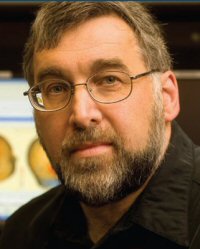Episode 28 :: Cliff Saron :: Neuro Dharma
Dr. Cliff Saron
Dr. Cliff Saron speaks with us about the limits of science, our paradigms, and the relation between statements made at the population level and what is meaningful for the individual in Buddhist training.
Our meditation is, by its very nature, in our own body and mind. It’s internal, there’s very little for someone to watch on the outside, they can’t do a fly through of our minds to see what’s going on. As it is so very subjective, there is a challenge when science does a study about that practice. We can ask participants in a study about various aspects of their daily activities, and how those may have changed while meditation was being done, and from that draw some numerical models of what kinds of effects people may see. But we can’t tell the individual meditator, here’s exactly what’s going to happen for you, every time.
Today we speak with Dr. Cliff Saron about the implications of studying a subjective, internal experience with objective, external information. What can science tell us, and what may be some of the limitations we can expect.
Clifford Saron, Ph.D., is an Associate Research Scientist at the Center for Mind and Brain and M.I.N.D. Institute at the University of California at Davis. He received his Ph.D. in Neuroscience from the Albert Einstein College of Medicine in 1999 studying the electrophysiology of interhemispheric visuomotor integration under the direction of Herbert Vaughan, Jr. Dr. Saron has had a long-standing interest in brain and behavioral effects of meditation practice and has been faculty at the Mind and Life Summer Research Institute and is currently a member of the Program and Research Council of the Mind and Life Institute. In the early 1990’s he was centrally involved in a field research project investigating Tibetan Buddhist mind training in collaboration with Jose Cabezón, Richard Davidson, Francisco Varela, Alan Wallace and others under the auspices of the Private Office of H.H. the Dalai Lama and the Mind and Life Institute. Currently, in collaboration with Buddhist scholar Alan Wallace and a consortium of over 30 scientists and researchers at UC Davis and elsewhere, he is Principal Investigator of The Shamatha Project, a unique longitudinal study of intensive meditation training based on the practice of meditative quiescence (shamatha) and cultivation of the four immeasureables (loving kindness, compassion, empathetic joy, and equanimity). The project, focused on changes in attention-related skills and emotion regulation, is the most comprehensive multimethod study to date regarding the potential effects of long-term intensive meditation practice on basic mental and physical processes related to cognition, emotion, health physiology, and motivation. His other primary research interest focuses on investigating brain and behavioral correlates of sensory processing and multisensory integration in children on the autistic spectrum.
So, sit back, relax, and have a nice single malt. If you have to ask if that’s chocolate or vanilla, we’re thinking about different things.
Podcast: Play in new window | Download
Quotes
“I always felt that the quality of open heartedness that one can feel in life, and the grace and gratitude that one can feel, very easily can be mis-attributed outside oneself and outside this ordinary life.” — Cliff Saron
Books
Web Links
- Dr. Cliff Saron
- Center for Mind and Brain
- UC Davis Mind Institute
- Saron Lab
- Shamatha Project
- Naropa University
- Insight Meditation Society
- Francisco Varela
Music for This Episode

Rodrigo Rodriguez
The music heard in the middle of the podcast is from Rodrigo Rodriguez. The tracks used in this episode are:
- Traces of Truth

